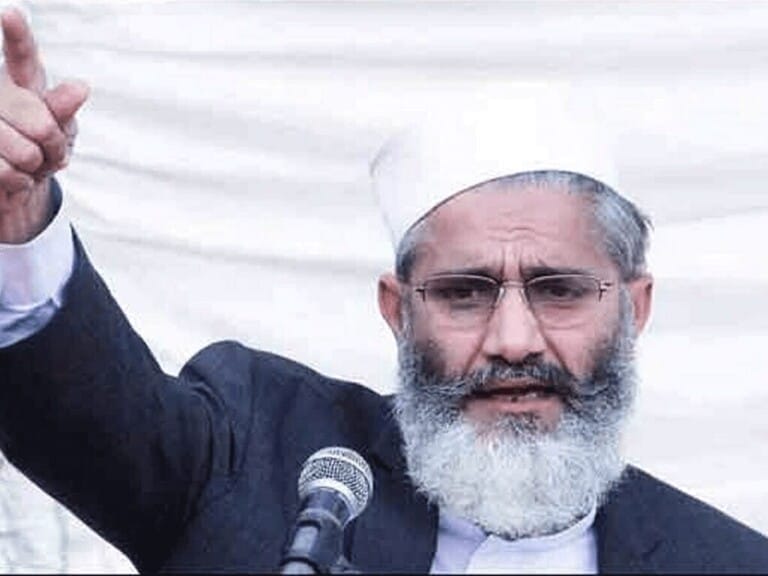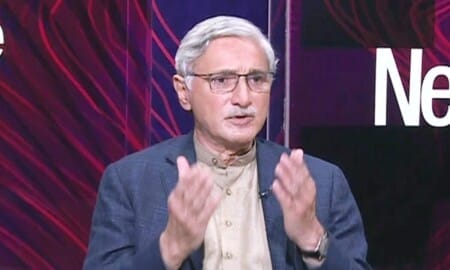In a striking display of accountability, Jamaat-e-Islami Chief Siraj-ul-Haq resigns following the party’s electoral setback.
Story Snapshots:
- Jamaat-e-Islami Chief Siraj-ul-Haq resigns after the party’s poor performance in the general elections.
- The party did not secure any National Assembly seats and won only a handful of provincial seats.
- His resignation is concurrent with Istehkam-e-Pakistan Party leader Jahangir Khan Tareen stepping away from politics.
Has Jamaat-e-Islami Chief Siraj-ul-Haq resigned following the general elections? Yes, Siraj-ul-Haq has resigned from his leadership position in Jamaat-e-Islami, accepting responsibility for the party’s underwhelming performance in the general elections of 2024.
When accountability echoes through the corridors of political power, it marks a momentous occasion in the narrative of democratic practices. Jamaat-e-Islami (JI), a political party with a storied presence in Pakistan’s political landscape, faced such a moment when Siraj-ul-Haq, the party’s chief, announced his resignation on Monday. This decision came in the wake of JI’s inability to secure a significant number of seats in the 2024 general elections. Siraj-ul-Haq, embracing a gesture of responsibility, announced his departure from the party’s helm.
The electoral results painted a sobering picture for Jamaat-e-Islami. The party’s campaign did not resonate sufficiently with the electorate, resulting in them failing to secure a seat in the National Assembly. The performance at the provincial level was marginally better, yet it still fell short of expectations, with JI claiming only a smattering of seats across Sindh, Khyber Pakhtunkhwa, and Balochistan.
Read: Choosing Pakistan’s Next PM Plunged into Uncertainty
Siraj-ul-Haq’s announcement reflects a broader trend of introspection within Pakistani politics, as illustrated by Jahangir Khan Tareen, the patron-in-chief of the Istehkam-e-Pakistan Party (IPP), who also resigned from his post and withdrew from the political sphere. These back-to-back resignations from party leadership positions signal a potential shift toward greater accountability in Pakistan’s political culture.
In his departure message, Siraj-ul-Haq extended his gratitude to his supporters and gracefully acknowledged his opponents, showcasing the decorum sometimes lost in the heat of political battles. With the aftermath of the general elections sending ripples through the country’s political fabric, the actions of these leaders have brought to light the personal and party reflections that follow electoral defeats.
As JI confronts this pivotal juncture, the future of the party hangs in the balance. The decision by Siraj-ul-Haq to step down heralds the need for renewal and perhaps a recalibration of political strategies. The party, which has been a persistent voice on various national issues, must now navigate through introspection and restructuring to reconnect with its base and reassert its relevance in the political arena.
The resignation of Siraj-ul-Haq not only underscores a personal admission of the party’s inability to persuade the electorate but also opens the door to fresh leadership that may bring transformative ideas and approaches to the forefront. Moreover, the parallel resignation of Jahangir Khan Tareen from the IPP demonstrates a shared sentiment of personal responsibility for electoral outcomes that could be indicative of a maturing political climate in Pakistan.
In both instances, these resignations serve as a testament to the leaders’ commitment to the principles of their respective parties and the democratic process. It emphasizes the importance of leadership accountability in ensuring the health and progress of a nation’s political discourse. As Pakistan looks toward its future, the actions of these individuals will likely be remembered as defining moments in the country’s ongoing quest for political integrity and maturity.
Tags: #PoliticalAccountability, #Elections2024, #JamaatEIslami, #PakistanPolitics, #DemocraticPractices












